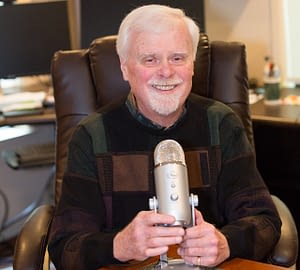Feeling Good™
About
Dr. Burns was a pioneer in the development of cognitive therapy, and is the creator of TEAM CBT, which makes rapid recovery from depression and anxiety possible. His Feeling Great app triggers 60% to 70% reductions in feelings of depression and anxiety in most users in less than two hours.
Education and Teaching
Dr. Burns graduated magna cum laude from Amherst College, received his M.D. from Stanford University School of Medicine and completed his psychiatry residency at the University of Pennsylvania School of Medicine. He later served as Acting Chief of Psychiatry at the Penn Presbyterian Medical Center (1988) and Visiting Scholar at the Harvard Medical School (1998), and is certified by the National Board of Psychiatry and Neurology.
Every week for the past 25 years, Dr. Burns has offered a virtual psychotherapy class at Stanford, which is free to mental health professionals from around the world. More than 50,000 mental health professionals have attended his training programs in the United States and Canada.
Awards
He has received numerous awards, including the A. E. Bennett Award for his research on brain chemistry, the Distinguished Contribution to Psychology through the Media Award from the American Psychological Association, and the Outstanding Contributions Award from the National Association of Cognitive-Behavioral Therapists. In 2019, he received the Irma Bland Award for teaching from the American Psychiatric Association. He has been named Teacher of the Year three times from the class of graduating residents at Stanford University School of Medicine, and feels especially proud of this award.
Research
Dr. Burns began his career researching the chemical imbalance theory of depression but eventually became one of its most outspoken critics. In a landmark 1975 study, he co-authored an article in the Archives of General Psychiatry which presented compelling evidence that low brain serotonin levels do not cause depression. His published research with Dr. David Antonuccio challenged the research strategies used by drug companies who market antidepressants. Later landmark studies by Dr. Irving Kirsch and others confirmed his conclusion that antidepressants may offer little benefit beyond their placebo effects.
Because Dr. Burns did not want to devote his life to a theory that wasn’t true, he left his tenure-track role at the University of Pennsylvania to explore new paths in psychotherapy. He was an early pioneer in cognitive therapy and later developed TEAM CBT, a powerful evolution of traditional cognitive therapy that can produce ultra-rapid recovery. His research has been published in leading journals like Journal of Consulting and Clinical Psychology, and has been foundational in a new understanding of how to treat emotional suffering.
Today, Dr. Burns continues to explore the mechanisms of change, analyzing outcomes from the Feeling Great app using advanced data modeling techniques. He regularly shares his findings in Psychology Today and remains deeply engaged in ongoing research and publication.
Books
Dr. Burns has written 10 books for the general public and mental health professionals. His Feeling Good: The New Mood Therapy has been a best-seller in the United States and worldwide for more than 40 years. Feeling Good is the book most frequently “prescribed” for depressed patients by psychiatrists and psychologists in the United States and Canada.
Surveys indicate that American mental health professionals rate Feeling Good as the #1 book on depression, out of a list of 1,000 self-help books. His most recent book, Feeling Great, was recently #1 on the psychology bestseller list on Dang Dang, one of China’s most authoritative and influential book charts, speaking to the universal appeal of Dr. Burns’s work.
To learn more about Dr. Burns, you can check out his Wikipedia page or read an article about Dr. Burns by Robert Strauss (“Mind Over Misery”) in the Stanford Magazine, which is one of the ten most popular articles in the history of the magazine.
